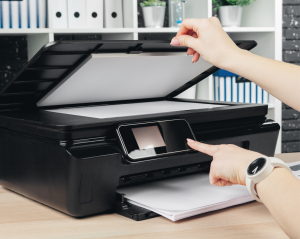Error message title

Error message title
Searching great energy plans for you
Toptips to save electricity in the kitchen
Whether you’re a wannabe gourmand or a fan of takeout and toast, your kitchen accounts for a large portion of your energy bill.
Try these simple tips to help you towards a more energy-efficient kitchen. It could help you slice a little (or a lot) off your energy bill.

Conserve energy by focusing on your fridge
Did you know that your fridge uses a massive 13% of your home’s energy? Only air conditioners use more.
Energy-efficient fridges offer big long-term savings, but if you can’t afford an upgrade, these simple tips will help you love the fridge you’re with.
- Give your fridge space to breath
Leaving a 5cm to 8cm gap around your fridge for air to circulate can reduce running costs by around 15%. - Keep 20% of your fridge space free
Overloading your fridge uses more energy. - Check your seals
Place a piece of paper in the seal and close the fridge door. The paper will hold firmly if the seal is working. - Leave leftovers to cool before putting them in the fridge
The warmer the food, the harder your fridge must work to maintain the temperature, which will impact your energy bills. - Avoid fridge door hangout
Save energy by deciding what you want before opening the door. - Going on holiday? Empty, disconnect and leave the fridge door open
Newer models may also have an energy-saving 'holiday' setting. - Avoid using a spare fridge, particularly in the garage
The garage is generally in the hottest space in the house and an older fridge may consume a lot of electricity trying to cool in a hot environment.
Cook up a storm while you save energy with your oven and stove
Making a big impact in the kitchen shouldn’t mean bigger energy bills. Here are some ways to save energy when you’re cooking up a storm.
- Multitask your oven
Consider baking for snacks and lunchboxes while dinner’s on. - Use residual heat
Turn off the oven a few minutes before your dish is done and finish cooking for free. - Make use of the microwave
Microwaves tend to be more energy efficient than ovens because they’re smaller and cook food in less time. - Keep the oven door closed and clean
Keeping things clean allows you to keep an eye on your food without opening the door and losing heat. - Choose your burner
Using a burner that’s too large for your pan can waste a lot of energy. - Chop your vegetables into bitesize chunks
Smaller pieces = shorter cooking time (and less energy used). - Bring out the barbie
On hot days, use an outdoor grill and cook up a storm while keeping the heat out of your home.
Clean up and reduce electricity usage with your dishwasher
Dishwashers use significantly less water than washing by hand, but there are a few ways to save extra energy when it’s your turn to do the dishes.
- Choose the right size dishwasher for your house
Too big and you’ll waste energy doing half loads. Too small and you’ll have to do multiple loads - Use your dishwasher’s energy-saving mode
Using the eco or energy-saving mode can save half the water (and water heating energy) used by other cycles. - Air dry your dishes
If your dishwasher doesn’t have a specific air-dry cycle, stop your dishwasher just before the dry cycle and open the door to let dishes dry naturally. - Fill up before you run
It sounds obvious but it’s important to only run your dishwasher when it’s full. However, don’t overfill – over stacking could mean dishes don’t wash properly. - Keep your dishwasher away from your fridge
Your fridge will have to work harder due to the heat coming off the dishwasher, which will mean more energy being used.
Want to learn more about how you can save on your electricity bill?
Looking to take more control over your energy usage? Our free tracking tools can help you any not-so-pleasant surprises.
MyENGIE
Check usage. Pay bills. Update details. Manage your account online, simply. Sign up or log in here.
Take control of your energy with Tracker
Smart meter customers can use Tracker to monitor electricity usage, set budgets and preview your bill. Learn more here.
References
https://www.sustainability.vic.gov.au/You-and-your-home/Save-energy/Fridges-and-freezers



